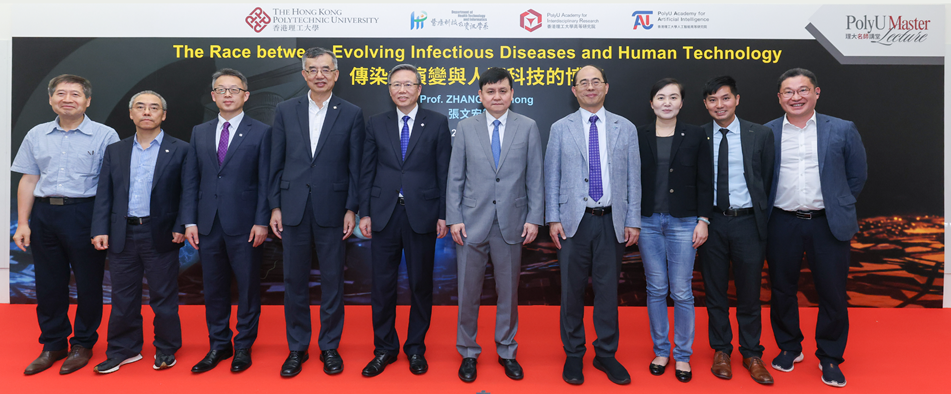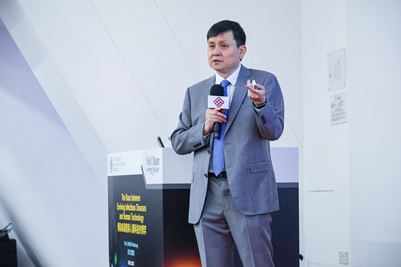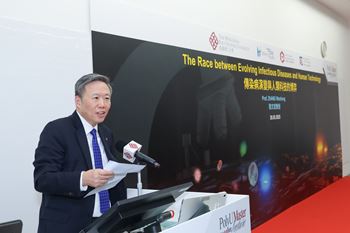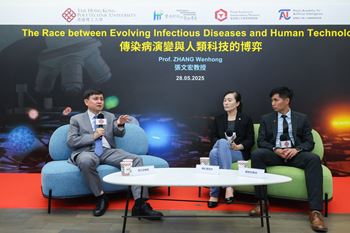
The Hong Kong Polytechnic University (PolyU)’s Department of Health Technology and Informatics (HTI), together with the PolyU Academy for Interdisciplinary Research (PAIR) and PolyU Academy for Artificial Intelligence (PAAI), co-hosted the inaugural PolyU Master Lecture on 28 May 2025. Prof. ZHANG Wenhong, Director of the National Medical Centre for Infectious Diseases and Head of the Institute of Infection and Health at Fudan University, gave the keynote speech, “The Race between Evolving Infectious Diseases and Human Technology”. He shared insights on how medical innovation and technology can rapidly anticipate and counteract the challenges posed by the unpredictable progress of infectious diseases before the next pandemic emerges. The event attracted approximately 450 participants, including PolyU faculty members, students, alumni, healthcare professionals and members of the public.
Prof. Zhang Wenhong is a world-renowned expert on infectious disease control, specialising in the clinical diagnosis, treatment and prevention of such diseases. A prominent figure in the field of infectious diseases in Mainland China, Prof. Zhang has been honoured as a role model in the battle with COVID-19 and as a Young and Middle-Aged Expert with Outstanding Contributions of the National Health Commission in recognition of his professional excellence in the Nation’s fight against the pandemic. He has been appointed as an Honorary Professor of the PolyU Department of Health Technology and Informatics and serves as an Expert Advisory Committee member for the University’s proposed third medical school.
During the lecture, Prof. Zhang shared insights on the origins and evolution of infectious diseases, the importance and challenges of vaccination during pandemics, and how medical innovations can predict and counter pandemic outbreaks. Prof. Zhang explained that infectious diseases evolve in unpredictable patterns, constantly reshaping themselves in ways that challenge the medical community’s ability to anticipate the next dangerous variant. While medical researchers methodically develop vaccines and treatments by means of careful scientific processes, disease-causing organisms rapidly adapt through random mutations that can bypass the most sophisticated defences.
Prof. Zhang also pointed out that while vaccination can effectively reduce the severity and mortality rate of infections, the silent transmission chains within communities and the emergence of new variants can weaken the protection provided by vaccines. Developing new vaccines will enable the global community to respond more effectively and help prevent future outbreaks and epidemics. Key strategies in addressing the next pandemic include achieving herd immunity, scaling up vaccine production, improving treatment plans, and developing tools and methods for the detection of, response to and containment of future infectious threats.
The subsequent Q&A session was moderated by Prof. YANG Hongxia, Executive Director of PAAI, and Prof. Gilman SIU, Professor in the HTI. Prof. Zhang engaged in in-depth exchanges with participants, inspiring all who were present.








